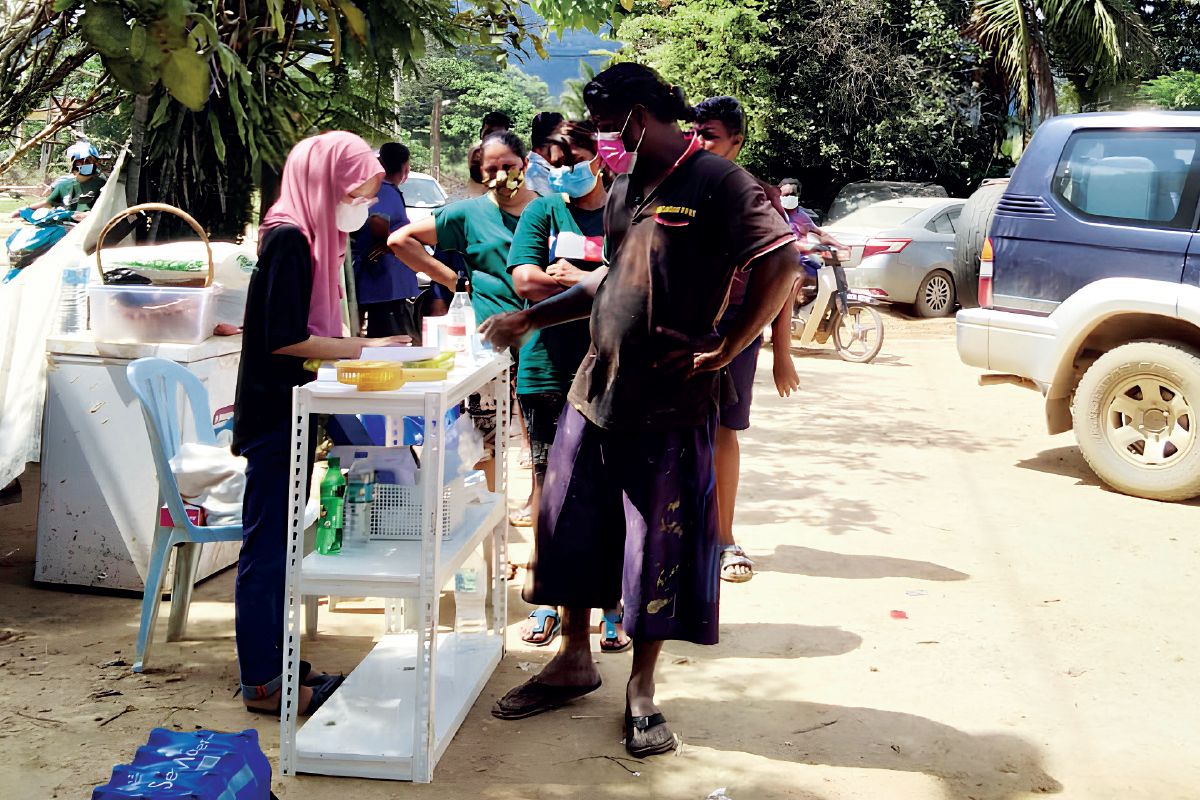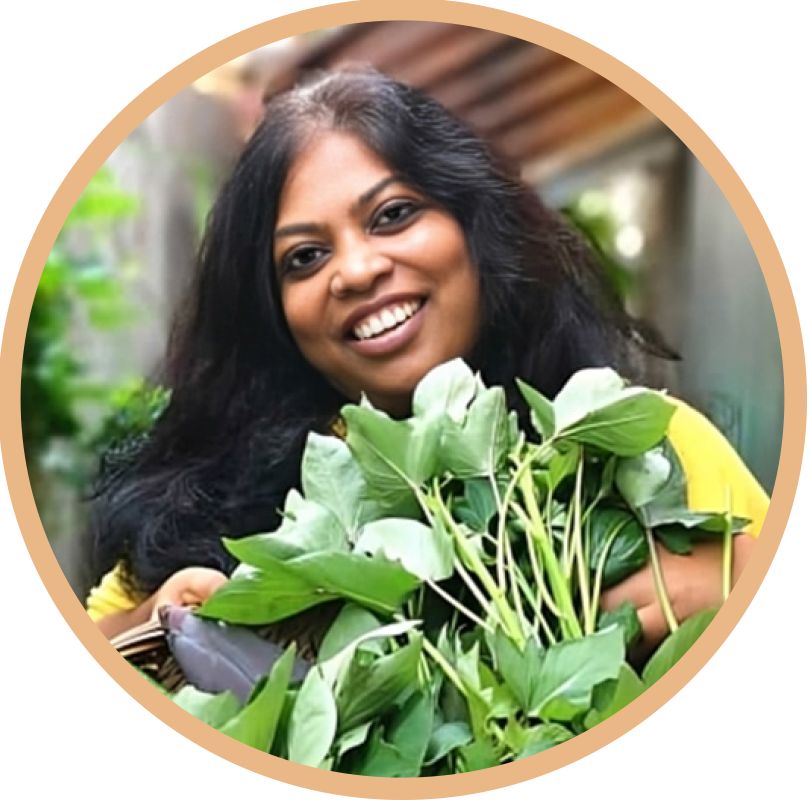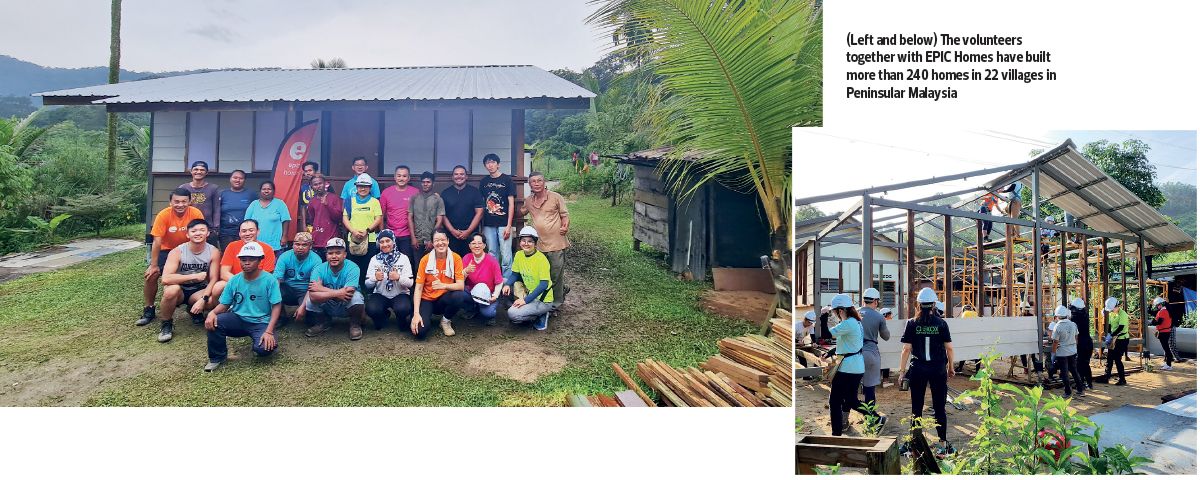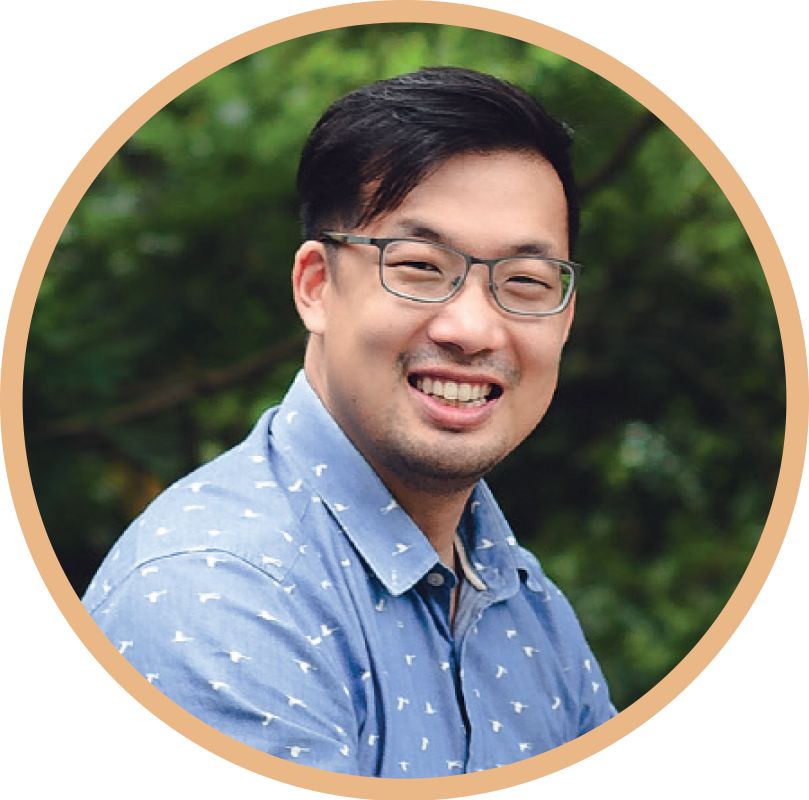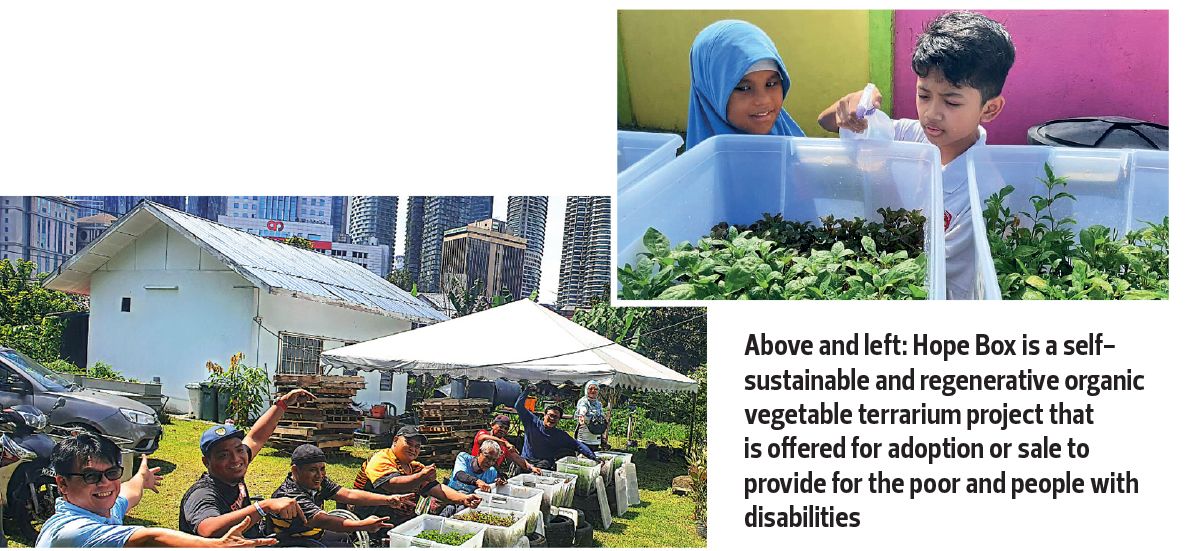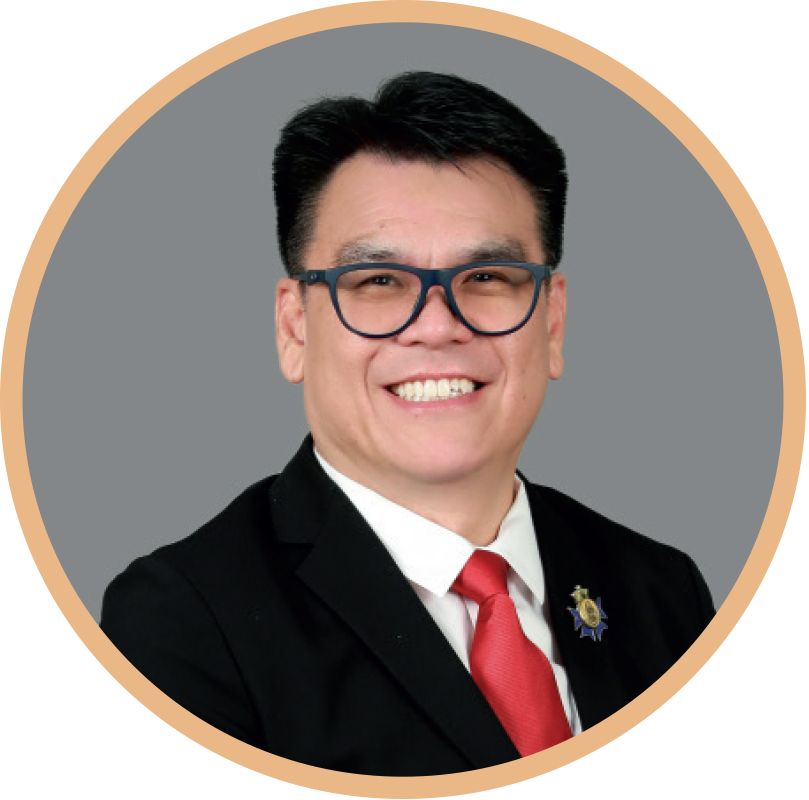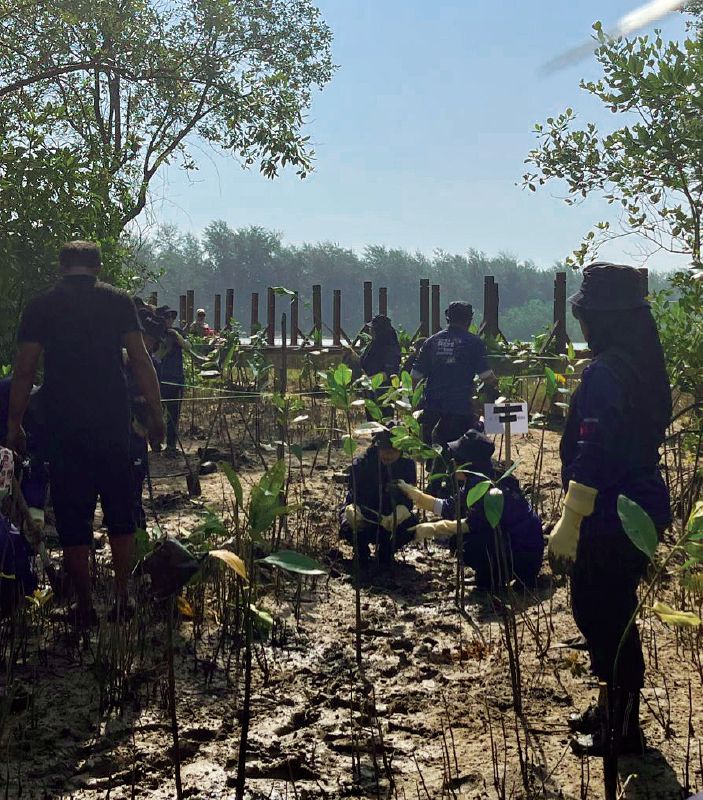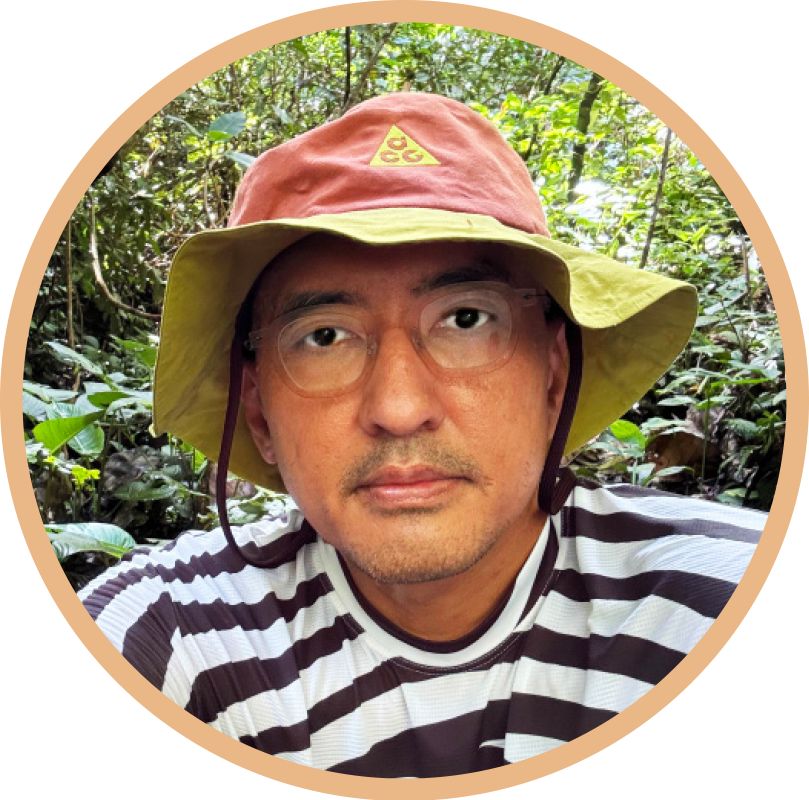
This article first appeared in City & Country, The Edge Malaysia Weekly on December 30, 2024 - January 12, 2025
Social enterprises have a vital role to play in addressing societal challenges and giving back to the community. Focusing on sustainable solutions and ensuring social welfare, these organisations’ earnest efforts greatly benefit communities and the environment. City & Country speaks to several organisations that have raised awareness of and improved the lives of underserved communities through eco-conscious initiatives.
Yellow House KL
Yellow House KL was founded in 2011 to create a society in which every marginalised individual, including the unhoused, undocumented, urban poor and refugees, is empowered to overcome adversity, find sustainable pathways to self-reliance and achieve lasting independence.
Its CEO and president Shyam Priah Marimuthu had endured the hardships of being homeless at one point. “Having been homeless before, it is my life experience that inspired me to start Yellow House KL, through which my team and I seek to create a sustainable model that would benefit the community and the environment,” says Shyam.
The initiatives by Yellow House KL to help these marginalised communities include the Unseen Tours Kuala Lumpur, which offers unique walking tours led by individuals who have overcome homelessness.
“Our tours provide a fresh perspective on the city, highlighting the resilience and knowledge of those who have experienced life on the streets. By empowering these individuals as tour leaders, we aim to create opportunities for them to uplift their circumstances and contribute positively to the community,” says Shyam.
Next is the First Job Initiative, which provides paid part-time work to homeless individuals, helping them gradually re-enter the workforce.
Shyam explains: “We offer guidance, support and meaningful employment opportunities to build their skills, confidence and financial stability. Our approach fosters a supportive relationship, enabling us to connect them with essential services like counselling and healthcare.”
These projects are currently on hold, however, as the Yellow House KL residence shelter is being renovated and rebuilt. “We will be back stronger in 2025,” says Shyam.
The projects, she adds, require substantial funding and a dedicated team of qualified professionals to ensure long-term impact. “Our projects delve deeply into the root causes of social issues in the community we serve. By addressing these underlying challenges, we aim to create sustainable solutions that empower individuals and communities to thrive.”
To better aid the community, she believes in fostering stronger public-private partnerships, advocating for policy changes that support social enterprises and raising awareness on the importance of community-driven initiatives that the team at Yellow House KL embarks on. “Only by working together can we create a more equitable and sustainable future for all.”
Yellow House KL has introduced a new project — The Farm School — to provide opportunities and agricultural training for marginalised communities.
“By engaging them in agricultural activities and environmental education, we aim to empower them with knowledge and skills that can lead to improved livelihoods and sustainable living. Our farm plots act as a classroom and offer a supportive environment in which the community can develop a sustainable income, confidence, resilience and a connection to nature,” says Shyam.
EPIC Homes
EPIC Homes started in 2010 when a group of volunteers led by its CEO and co-founder Oei John-Son carried out a one-off project to build a toilet and paint houses in an Orang Asli village.
Realising that the community’s needs were greater than anticipated, they were inspired to make a bigger difference. “We endeavoured to find out how we could make an impact. That’s where we got to know a man, Pak Cihong, who had been living in a structurally unsafe self-built shelter that was on the verge of collapse. We were shocked to learn that he had been living in such a precarious housing condition for over two years, and that’s when the idea for EPIC Homes started to take form,” Oei says.
“Situations like Pak Cihong’s are a symptom of a larger underlying issue: poverty. For a solution to be truly sustainable in the long term, we knew the problem had to be solved at the root level. That’s why our mission goes beyond just providing homes. At its core, EPIC Homes aims to build relationships by building homes.”
The social enterprise has built more than 240 homes in 22 villages in Peninsular Malaysia. “However, this is just a drop in the bucket. That’s why we’re driven to push the boundaries and increase our capacity through our most ambitious project yet — Project 100,” says Oei.
This project aims to build 100 homes for the Orang Asli every year. “So far, we have housed 101 Orang Asli families.
“However, the most notable projects have not necessarily been initiated on our end. When collaborating with communities on projects, we sometimes witness the emergence of what we call ‘local champions’ — individuals with a proactive spirit and a clear aspiration for the betterment of the community,” says Oei, likening it to a ripple effect that inspires others to embark on similar acts.
An example would be its Kampung Orang Asli Hulu Kuang home-building project this year. “Despite having just learnt the required technical skills, many residents stepped up to proactively take on leadership roles. In particular, several women were key in coordinating and managing their community’s participation” says Oei.
Meanwhile, fundraising, especially on a larger scale, remains a significant challenge for EPIC Homes. “Our hope is for the generosity of others to match our ambition and evidence of impact, so we can continue to scale. In other words, don’t give to us out of pity, but because our mission moves you to see the tangible impact in underserved communities,” says Oei.
He also aims to break the walls of scepticism common among the underserved communities. The scepticism, he adds, was formed over the years through multiple disappointments, usually owing to mismatched short-term solutions. “In mobilising these communities to work alongside us, there are no shortcuts. Relationships and trust are built over time, with consistent and sincere effort,” says Oei.
Currently, EPIC Homes is working with architect and bamboo advocate Low Ewe Jin, bamboo supplier SEAD and engineering firm JTK Consult to develop an eco-friendly bamboo-based home.
“Bamboo is readily available in abundance in many Orang Asli villages. This makes it easily accessible and opens up economic opportunities for Orang Asli communities to make a living from harvesting and treating bamboo for use as a construction material for EPIC Homes,” says Oei.
Another project the team is working on is the development of a “material bank”. “The idea is to provide marginalised communities with a way to obtain building materials at prices significantly below market rates, or even free, from developers and suppliers that are looking for a sustainable and impact-driven way to redistribute their excess or discontinued stocks,” says Oei.
PWD Smart FarmAbility
PWD Smart FarmAbility was founded in 2019 to empower persons with disabilities (PWDs) through inclusive and sustainable agriculture.
Billy Tang, its founder, was inspired to create a platform where PWDs could cultivate their independence and dignity while contributing meaningfully to society. “Our mission is rooted in ensuring that no one is left behind in the journey towards a free, inclusive and sustainable nation. In this context, the term ‘free’ refers to creating a society where individuals, including PWDs, are liberated from limitations, stigma and barriers. It signifies freedom of opportunity, empowerment and inclusion —enabling everyone to pursue their potential, contribute meaningfully to society and live with dignity,” says Tang, who is a paraplegic farmer. He adds that their work highlights how integrating soil as a vital economic infrastructure can drive community empowerment and sustainable land development.
A key initiative is the satellite farm model, which serves as a blueprint for sustainable and inclusive community development. “These farms are not just agricultural spaces; they are community hubs where soil is treated as a critical economic infrastructure. By rehabilitating and enriching the soil, we create productive land that supports both the environment and local communities,” says Tang.
“Our regenerative organic vegetable terrarium, the Hope Box, and regenerative ‘soil-u-tion’ aquaponics satellite farm proprietary system are designed to demonstrate how sustainable land-use and inclusive agriculture can coexist. These projects showcase how revitalised soil can serve as a foundation for community-driven real estate and property development.
“Furthermore, our #Feeding4Health initiative promotes food security, inclusivity as well as sustainability.”
He hopes for more funding and PWD-inclusive infrastructure so that it can fully realise the potential of its initiatives. Another major challenge, he notes, is the underappreciation of soil as a crucial economic infrastructure in property and community development. “This often leads to short-sighted land-use policies that overlook the long-term benefits of sustainable soil management,” says Tang.
“There should be policies that promote soil rehabilitation and sustainable land use, incentives for developers to integrate green spaces and inclusive sustainable farming practices, and financial support for community-driven agricultural projects. With that, we can create environments in which people and the planet can thrive.”
Tang hopes to expand PWD Smart FarmAbility’s satellite farm network, focusing on integrating these farms into the broader real estate and community development projects.
This includes initiatives such as innovative tilapia farming, where the fish is processed into ice cream and biscuits via a patented method that eliminates the fishy taste. This method is a healthier, more sustainable alternative to canned fish products and is more appealing to people of all ages.
EcoKnights
EcoKnights is a non-governmental environmental organisation established in 2005. The organisation works with key stakeholders to drive and empower sustainable actions for a better planet.
“We do this by developing and implementing programmes and activities across four pillars: environmental justice in Malaysia, building resilient youths, creating independent community in sustainable development and mainstreaming sustainability.
“Our mission is to empower youths and communities with environmental projects, which has been the inspiration of the organisation since its founding years. Therefore, our work revolves around the four pillars. We strive to promote these elements among Malaysians whenever possible,” says EcoKnights programme director Fadly Bakhtiar.
EcoKnights has completed various projects over the years that involve habitat restoration as well as youth and community empowerment. One of the flagship projects, which have the themes of restoration, rehabilitation and conservation, is the ongoing Tree4Us programme.
“Since 2023, about 2,000 saplings have been planted in various locations around Malaysia, such as Tanjung Karang, Sijangkang (both in Selangor), Tuaran (Sabah), Setiu (Terengganu) and Nibong Tebal (Penang),” says Fadly.
Another initiative EcoKnights is undertaking is the Kempen Air Kita Tanggungjawab Bersama (#AirKita) under Forum Air, an organisation established by the National Water Service Commission (SPAN) and which EcoKnights has been working with since 2023.
“The goal is to spread awareness about conservation of water resources and increasing water literacy among the public. Under #AirKita, we held Anugerah Hijau, a collaborative effort with various schools across Malaysia to highlight the importance of water conservation to students,” says Fadly.
He adds that it has also organised Program Cekap Air, which has similar goals but is aimed at the broader community. “Through Program Cekap Air, we have installed about 80 pili cekap air (water-efficient taps) provided by SPAN at four mosques to promote water conservation at a community level.”
Meanwhile, other initiatives include Project BUMI (Benefiting Under-Marginalised Individuals), which aims to aid underprivileged communities, lift them from poverty and empower them towards sustainable living, and the Kuala Lumpur Eco Film Festival (KLEFF) to promote environmental activism through local and international films, forums, panel discussions as well as local green vendors and workshops.
Fadly says funding and human resources are EcoKnights’ most significant challenges as a non-profit organisation. “Most of our programmes and projects, especially Trees4Us, require much labour. We are always looking for volunteers, as there is a constant lack of it. However, this does not discourage us but motivates the team to work hard for the project to be successful.
“In addition, we are constantly seeking financial support from stakeholders and collaborators that align with our pillars. Our approach involves building strong relationships with funders and demonstrating the impact of their contributions, ensuring they see the value in supporting our initiatives. We strive to increase our visibility as a pioneering organisation upholding volunteerism and community work in combating environmental issues.”
He highlights that future projects will be driven by the commitment to make a significant impact on the environment and people.
“For instance, we want the number of trees planted each year to reach 20,000 trees in total by 2025 through Tree4Us. We also plan to bring KLEFF back to its pre-pandemic glory days, expanding its reach to be the go-to environmental eco-festival in Kuala Lumpur and Malaysia. We also want to increase our outreach to more communities through our #AirKita campaign and Project BUMI,” says Fadly.
Save by subscribing to us for your print and/or digital copy.
P/S: The Edge is also available on Apple's App Store and Android's Google Play.
- ‘Worst-case scenario’ for tech wipes US$1.4 trillion from Nasdaq
- Berkshire dismisses 'false' reports on Buffett comments after Trump shares video
- Trump’s TikTok plan upended by Chinese objections over tariffs — Bloomberg
- Anwar says impact of latest US tariff on nation's economy still being assessed
- Singapore, Malaysia and other Asean neighbours to strengthen cooperation — PM Wong
- China’s rare earths curbs put multiple US industries at risk
- Southeast Asia rushes to avert tariff pain by enticing Trump
- Condivergence: Europe’s uphill battle to rebuild its semiconductor industry
- Canada minister wants LNG Canada doubled, eyes western pipeline upgrade
- Putra Heights disaster: King visits ground zero

